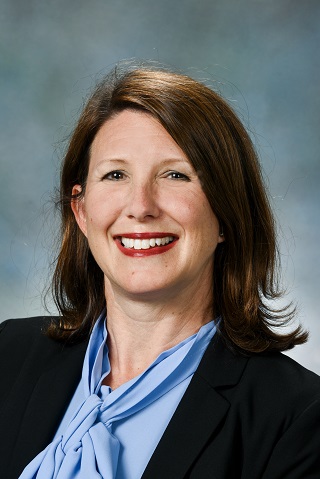
06 Oct Shannon Jackson
What is your vision for Knoxville 10 years from now?
Knoxville is a strong community once nicknamed “Scruffy City.” The city embraces its complicated history and uses it toward continuous improvement. Knoxville is on the brink of greatness. Leaders must listen to constituents’ voices and participate with them in defining the future. We can build on strengths that already exist such as the research and employment opportunities at Oak Ridge National Labs and the University of Tennessee. This makes the city attractive to people who want to change the world. The growing entertainment and manufacturing sectors allow us to retain and recruit local, national, and international talent. Rural, suburban, and urban communities provide opportunities for different lifestyles. In my vision of Knoxville, talented individuals are drawn to the community and stay because it is a great place for families to work and play. The downtown area thrives with arts, crafts, locally owned and operated restaurants, and farmers’ markets, encompassing all voices and flavors, enriching the experiences of all. Complementing the vibrant downtown is continued development, conservation, and protection of the urban wilderness, lakes, and mountains. To actualize this vision, leaders need to respectfully listen to and incorporate the voices of a changing demographic, even when we disagree. If we are successful in promoting widespread ownership of an evolving vision in the context of a safe community for work and play, Knoxville has all the resources necessary to set the standard for positive community development in a changing world.
What are you reading that is on your nightstand?
Things Hidden: Scripture as Spirituality by Richard Rohr; Jack’s Life: The Story of C.S. Lewis, by Douglas Gresham; The Book Woman of Troublesome Creek by Kim Michele Richardson
What is your favorite Knoxville memory?
In my late twenties, early thirties, we purchased a wakeboarding boat. I spent every possible evening and weekend relaxing on the Tennessee River. I vividly remember the feeling of waking up early on a Saturday morning to get out on the water while it was calm and the instant feeling of relaxation that washed over me when I puttered out of the marina to the open waters, getting my first glimpse of the morning sun reflecting off of the water and casting halos of light on the surrounding mountain views. The time with friends was precious and protected. With no interruptions from cellphones or laptops, we entertained ourselves with good conversation, laughter, wake boarding mishaps, and the serenity that comes with enjoying the natural beauty of East Tennessee.
What is the best advice you have received from a mentor, and who was that mentor?
When I was a mid-career teacher, I had a colleague who forever impacted my understanding of leadership. I cannot name her here; however, I hope she recognizes herself if she reads this. At the start of a new school year, she joined us as a faculty member after serving in a high leadership position in another school. She was moved to our school after some of her staff engaged in unethical behavior. I expected her to be bitter and angry; after all, she had not been involved in unethical behavior herself, but as the leader she suffered the consequences of other’s bad choices. However, that was not the case. She came to our New Teacher Orientation and was fully engaged as a learner. She asked to visit classrooms to get ideas for instruction and classroom management that worked in our vastly different school environment. She attended all professional development sessions and demonstrated her willingness to learn how to be successful in our school. Her attitude of collegiality, professionalism, grace, and commitment to students in a time of personal struggle made a lasting impact on me. While she was not a mentor in the traditional sense and her advice was given through her actions, not her words, she was a model of professionalism and character under adversity that still resonates with me today. She demonstrated the impact of being a positive leader even without formal authority.
What advice would you give to your 16 year old self?
The movies of my teen years portray the teen struggle as a time to fit in (The Breakfast Club) or move up in social status (Pretty in Pink) or have the perfect day (Ferris Bueller’s Day Off). In each case, John Hughes’s protagonists are searching for happiness somewhere outside themselves. At 16, I was an active member of the Girl Scouts, which pulled me out of the silver screen version of the teenage perspective and gave me the opportunity to backpack, sail, and sell cookies. It was an experience of girlhood separate from that in teen magazines and television. It was not an activity that I did with girls in my own school, so I was exposed to different perspectives. At the time, I did not have the language to consider the various messages about life’s meaning, so I was confused about how to reconcile what seemed like separate lives. Therefore, my advice to my 16-year-old self is to critically evaluate conflicting messages and search for meaning. As Viktor Frankl writes in Man’s Search for Meaning, happiness is a byproduct of having meaning and purpose in your life. Finding your meaning and creating your purpose give you an anchor in principles and ethics to evaluate competing messages.


Sorry, the comment form is closed at this time.